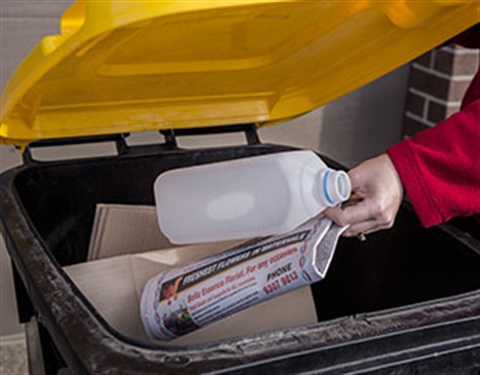Recycling dos and don'ts

The contents of your recycling bin are taken to a specialist recycling facility where they are sorted into material streams and sold to the manufacturing industry to create new products. Making products from recycled material uses less water and energy than making something from new materials and helps to conserve valuable natural resources.
Our residents recycle over 14,000 Tonnes of household recyclables each year (as of 2023) and our recycling rates are on the rise.
However, recent waste audits found that more than a third of the average yellow bin contained items that could not be recycled, including bagged garbage and food waste. This material can cause major processing issues at the recycling facility. To help maximise the amount of material being recycled, it is important that you only use the yellow bin for accepted recyclable material.
Items accepted in your recycling bin
- Cardboard such as boxes, cereal boxes, egg cartons, pizza boxes
- Paper such as envelopes, junk mail, greeting cards, office paper, newspapers, magazines
- Household metals such as aerosols, aluminium and steel cans, pie trays, foil (scrunched)
- Glass bottles and jars
- Hard plastics such as milk and detergent bottles, biscuit trays, margarine tubs, ice cream tubs